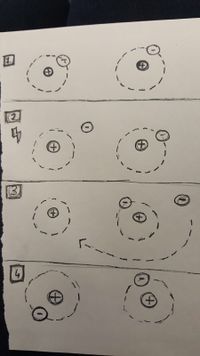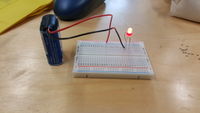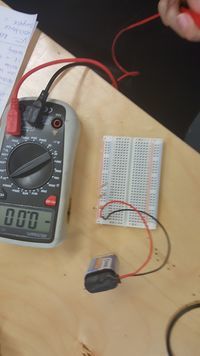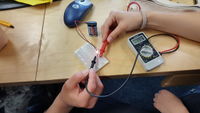Difference between revisions of "User:SPalm"
| Line 130: | Line 130: | ||
== Human Fill in the Gap== | == Human Fill in the Gap== | ||
| − | + | *Human Fill in the Gap is our exhibition title. It shows that there are people needed in order to complete the assignment ( interactive). The exhibition contains three different projects which are my *project, the warm jacker of Quint and the electronic paint of Sungmi. These projects are about changing the context and showing the unpractical or practical side with a touch of playfullness. | |
| − | Human Fill in the Gap is our exhibition title. It shows that there are people needed in order to complete the assignment ( interactive). The exhibition contains three different projects which are my project, the warm jacker of Quint and the electronic paint of Sungmi. These projects are about changing the context and showing the unpractical or practical side with a touch of playfullness. | ||
Revision as of 07:49, 22 June 2017
Contents
Introduction
Welcome to my page! On this page I will talk about my project and inspirations, also show the process to my final result. For this project I want to use electronic devices to make art. Inspirations are Jean Tinguely, Joseph Griffiths, Echo Yang and lastly conditional design. Ofcourse there are endless examples of how to make such drawing device.
Form: We are doing an interactive installation where the public are doing something as the process. Using the device to draw something. There are conditions that the person must follow in order to complete the work. But remember the endresult is not the work, it's the process.
Function/Context: We live in a world where technology took over and where we can't imagine our life without this. We want to combine the technology world to humanity, to show the relationship between this. We also want to connect this project to digital craft ofcourse so we use the blueprint of the circuit electric of a LED Lamp.
Medium: Everyday devices that people use. Think of mixer or coffee maker.
Class Assignments
Measuring Voltage
What you need (ask at the Interaction Station):
* Multimeter * 9 Volt battery (5V in the tutorial) * 9 Volt battery clip for in a breadboard * 470 Ohm resistor (1K Ohm in the tutorial) * LED * breadboard
Outcome: Voltage 7
Resistance 465
Ampere 19.3
Measuring resistance
What you need (ask at the Interaction Station):
* Multimeter * 3 random resistors * 3 resistors of the same value * breadboard
Series Resistance Outcome: Volt 1th restitor 2.38
Volt 2nd/3th 2.39
Volt 1th + 2nd together 4.77
Volt 2nd + 3th together 4.78
Volt 1th +2nd +3th together 7.16
I = V/R
9,11: 2,38 = 3,83
9,11 : 7,16 = 1,27
Parallell Resistance Outcome
Voltage van de drie restitors 8.41
Measuring Current
What you need (ask at the Interaction Station):
* Multimeter * 9 Volt battery (5V in the tutorial) * 9 Volt battery clip for in a breadboard * 470 Ohm resistor (1K Ohm in the tutorial) * LED * breadboard
Outcome Volt 7
Resistance 465
Ampere 19.3
Measuring voltage and current in a series circuit
What you need (ask at the Interaction Station):
* Multimeter * 9 Volt battery (5V in the tutorial) * 9 Volt battery clip for in a breadboard * 3 resistors random resistors * breadboard
Outcome Volt 9.11
Ampere 3.83
I = V/R
9,11: 2,38 = 3,83
9,11 : 7,16 = 1,27
Measuring voltage and current in a parallel circuit
What you need (ask at the Interaction Station):
* Multimeter * 9 Volt battery (5V in the tutorial) * 9 Volt battery clip for in a breadboard * 3 resistors random resistors * breadboard
Outcome:
Battery voltage: 8.58
Voltage van de drie restitors : 8.41
I=V/R
8.58/8.41 = 1.02
Human Fill in the Gap
- Human Fill in the Gap is our exhibition title. It shows that there are people needed in order to complete the assignment ( interactive). The exhibition contains three different projects which are my *project, the warm jacker of Quint and the electronic paint of Sungmi. These projects are about changing the context and showing the unpractical or practical side with a touch of playfullness.
What you need (ask at the Interaction Station):
* Multimeter * 9 Volt battery (5V in the tutorial) * 9 Volt battery clip for in a breadboard * 470 Ohm resistor (1K Ohm in the tutorial) * LED * breadboard
== Experiments==





